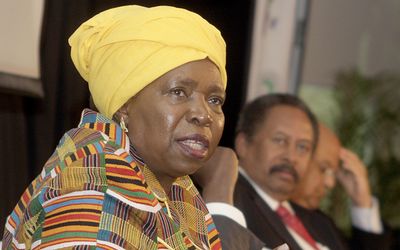PBS: Escaping Eritrea … [Read More...] about ካብ ውሽጢ ቤት ማእሰርታት ኤርትራ
Young South Africans harbour new thoughts
BY JONNY STEINBERG, 26 JUNE 2015, BUSINESS DAY (SOUTH AFRICA)

IT HAS been 19 years since Thabo Mbeki declared that “I am an African” and yet his speech sounds now as if it might have been made centuries ago. No current South African leader has the credibility to make poetry about being an African. The very idea is too fraught, too contested, too liable to provoke anger. When xenophobic violence broke out in April, a cry of fury resounded across the African continent.
After the sacrifices we made to render your liberation possible, South Africans were told, is this how you repay us? At great cost, we gave your people shelter. In return, you are killing those of our citizens who dare to arrive on your shores. Late last month, I interviewed a group of young men from Snake Park, Soweto, where violence against foreign nationals had erupted in January. Several of them freely acknowledged that they had thrown stones and looted.
The day before I met them, African Union Commission chairwoman Nkosazana Dlamini-Zuma had made a speech condemning xenophobia. “In Ethiopia,” she said, “I am not made to feel a foreigner. I feel like an African visiting an African country.”
A couple of the young men I interviewed had seen the speech on the news and I asked them what they thought of it. “I’ve never been to Ethiopia,” one of them replied, “or even to Botswana. Just to leave Snake Park costs money. Who is it that African states looked after during apartheid? South Africans? No. They looked after an elite that came home to make money. I agree that Dlamini-Zuma owes the people of Africa something. I owe them nothing.”
It was a bracing reply, not just for its cynicism and its cruelty, but because it was new. South Africans are harbouring thoughts they did not have a year ago. An African National Congress (ANC) grandee no longer has the authority to tell young people that they are Africans. Her words boomerang on her. “You may call yourself an African,” they tell her, “but don’t you dare assume that your experience is ours.”
“I preferred what (President) Robert Mugabe said about being an African,” one of the young men chipped in, and everyone in the room laughed. Indeed, how remarkable that Mugabe’s first state visit to SA in years coincided with the violence. A brilliant and demonic man, and he came to SA’s shores to scratch open wounds. “South Africans will kick down a statue of a dead white man,” he said during his visit in April, referring to the Rhodes Must Fall campaign, “but won’t even attempt to slap a living one.
“Yet they can stone to death a black man simply because he is a foreigner.” You can be an African, Mugabe was saying, if you train your anger on your real enemies and attack the unjust pact SA’s black and white elite made with one another in 1994. And that is the point. For 20 years, there was a consensus in SA that the settlement we reached in 1994 was the right one.
That is now open to question in ways it has not been before, on the streets and in the lives of ordinary people, especially the young and the aspirant. When ANC leaders talk of being African, they invite the accusation that they have chosen an Africanness that suits only themselves and that others are free to reject. This dwindling authority over what it might mean to be an African finds perfect expression in the leadership of President Jacob Zuma.
One day he tells South Africans to paye-tolls because “we cannot think like Africans in Africa” and be satisfied with the useless roads they build in godforsaken countries like Malawi. The next he pronounces South Africans lazy and counsels them to find inspiration from the worldly Africans who come to our shores to make their fortunes. Then he defies a court order and spirits away a visiting president in the name of African solidarity against western bullying.
I am sorry I did not get to ask the young men from Snake Park what they thought of the (President) Omar al-Bashir episode. They would probably have told me that they had never been to Sudan, that such luxurious travel was reserved for Africans like Zuma.
• Steinberg teaches African Studies at Oxford University and is a visiting professor at the Wits Institute for Social and Economic Research.
